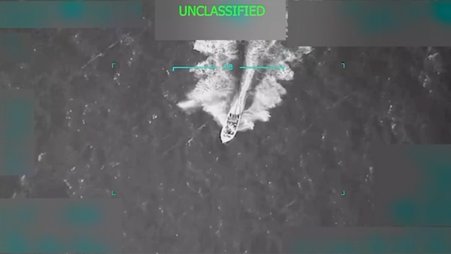Former President Donald Trump’s first term flouted transparency norms, preservation laws, and attempts at congressional oversight.
Here are some important areas where a second Trump administration could continue this trend:
Press protections
Trump has said journalists should go to jail for protecting their sources, made vulgar suggestions about what would happen to them there, belittled journalists — female journalists in particular — and threatened to strip the networks he doesn’t like of their broadcasting licenses.
His administration also pursued eight Espionage Act cases, as many as President Obama but in half the time.
A second Trump administration could be more aggressive, overturning press protections, and further empowering counterintelligence agencies to persecute journalists. This makes it imperative that the Senate pass the PRESS Act and protect journalists’ freedoms and source confidentiality.
Executive orders
Trump did not author an executive order on classified national security information, and the current order outlining what can be classified and how classified information is handled, 13526, dates to the Obama administration.
But the legal battles surrounding Trump’s mishandling of classified information may encourage him to draft an EO that would grant him more expansive authority on classification issues during a second term.
While it’s unlikely a new EO would establish a president's ability to declassify documents just by “thinking about it,” as Trump claimed he did, one area where a new EO could try to carve out more presidential authority is nuclear weapons. Nuclear information is declassified differently than other government information, and the rules are mandated by the Atomic Energy Act. A new EO claiming more authority over nuclear information could face legal challenges, but it’s not outside the realm of possibility.
Presidential records
Whether ripping up records, not preserving calls with foreign leaders, using disappearing messaging apps, or refusing to transfer ownership of presidential records to the government at the end of his administration as required by law, Trump showed a consistent disregard for the Presidential Records Act.
None of the legal actions against Trump since he left office have attempted to enforce compliance with the PRA. A second Trump administration may exploit the ongoing lack of enforcement by more recklessly destroying presidential records.
Agency records
Federal agencies are required to preserve their records in accordance with the Federal Records Act and to provide public access to those records under the Freedom of Information Act.
During his first term, Trump undermined these complimentary laws by appointing agency heads who discouraged federal officials from creating records in the first place or from communicating with the public and Congress, who ordered agencies to stop posting press releases, and who explicitly sought ways to avoid compliance with FOIA.
There are no indications a second Trump term would be more compliant with either the FRA or FOIA.
Agency secrecy
In 2020, the Trump administration approved Customs and Border Protection’s request to be labeled a “security agency.” This designation makes it even more difficult for the public to access CBP’s records. If more agencies apply for this designation under a second Trump administration, there’s little reason to believe they would be denied.
At the same time, Trump could renew efforts to undermine the FBI and the intelligence community. Some of the accusations made by Trump against law enforcement and intelligence agencies may be baseless, but other complaints may touch on legitimate problems. The most effective way for agencies to defend themselves from baseless attacks would be to show their work and be more transparent.
Congressional requests and inspectors general
The Trump administration often failed to comply with congressional oversight requests, especially if those requests did not come from a committee chair. A second Trump administration could continue this trend, preventing lawmakers from accessing information they are constitutionally entitled to. If so, congressional committees may be forced to sue federal agencies for information, although individual members would face significant legal challenges when filing suit.
The first Trump administration also failed to staff key oversight and civil liberties boards and undermined the effectiveness of inspectors general across the government by either replacing them (IGs are nonpartisan and usually have open-ended appointments), firing them, or leaving those positions vacant. A second term may see a similar attack on agency oversight mechanisms.
Transparency norms
Trump didn’t follow transparency norms like publishing his tax returns, providing access to the White House visitor logs, or hosting regular press briefings during his first term, and there is no reason to think he would change during his second.
There is already too much room for excessive executive secrecy, and the Supreme Court’s ruling granting presidents broad immunity for their “official acts” all but ensures a second Trump administration would be more secretive than the first — with little, if any, fear of accountability.
Read the other blogs in this series

Excessive government secrecy and the presidential election
This multipart series assesses the secrecy risks of both presidential candidates, the systemic problems that will challenge either presidential administration, and the ways the public can most effectively fight for transparency.

The Harris secrecy assessment
How secretive would a Harris administration be? Her time in the Senate provides insights on ways she could shape secrecy in the United States as president.

Is entrenched secrecy more powerful than the presidency?
Secrecy isn’t a partisan issue, it’s a systemic one. What are the key government secrecy issues that must be addressed regardless of who wins the election?





